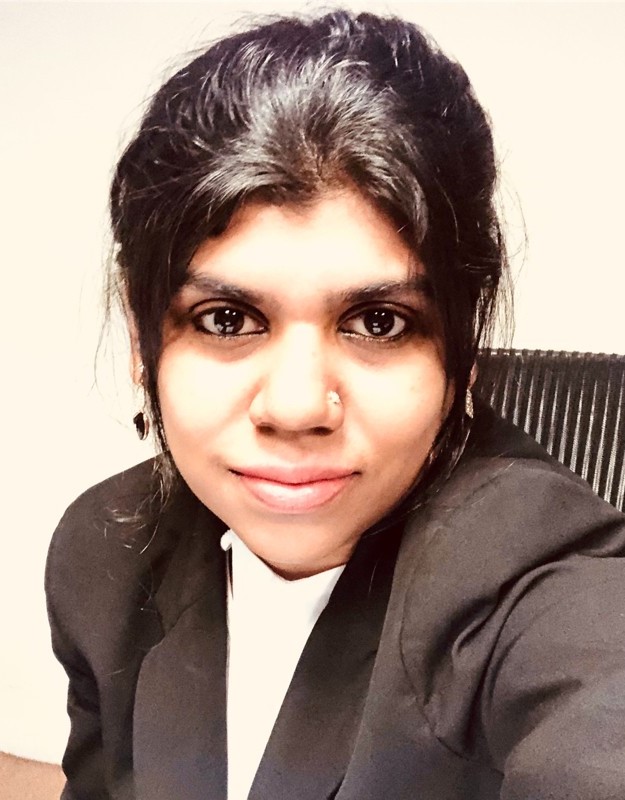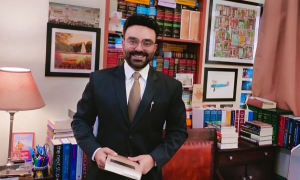This Interview has been published by Pragya Chandni and and The SuperLawyer Team

Ma’am, could you please share your journey and how you ended up pursuing a career in law? What motivated you to choose this profession?
From a young age I was very bold and would always speak my mind. I also had a very strong desire to help people. I felt like I gravitated towards Law as my elder brother also chose Law as his career path. At that age you are extremely influenced by your siblings. When I started reading different law subjects, I became more and more curious and continue to be curious about everything law has to offer.
I remember feeling so overwhelmed on my first day in court. But I kept accompanying my colleagues / seniors and I slowly became familiar with all the court procedures etc.
My journey has been full of surprises. I have experienced the highest of highs and lowest of lows, but I keep showing up and never despair. I would say litigation is very unpredictable as you never know what will happen in court.
With your extensive experience in handling commercial and civil disputes, insolvency cases, and matters under the Industrial Disputes Act, can you highlight a particularly challenging case that stands out in your career and how you navigated through it?
I represented a company in a case wherein there was an injunctive order against termination of an employee. It was challenging as the company was forced to continue his employment. However, we took the aid of section 14 and section 16 of the specific relief act and were able to demonstrate that contracts solely dependent on personal qualifications cannot be enforced.
Your work involves representing clients in intellectual property rights cases. Could you discuss a memorable case where your skills in IP law played a crucial role in achieving a favourable outcome?
In one of the Intellectual property rights cases there was an ex-parte order operating against our client restraining them from infringing the plaintiff’s trademark. We relied on section 30 of the trademarks act and were able to demonstrate that there was no infringement of trademark as our client was merely showcasing products and was in no way “using the plaintiff’s trademark”. This case was challenging as it is difficult to get an interim order vacated.
From your time at Poovayya & Co., you were involved in representing organizations in electronic and print media. Can you share an interesting experience or case related to media law that you found particularly intriguing or challenging?
An interesting experience was regarding injunctive reliefs against publications (electronic or media) from telecasting defamatory articles / news. In such cases, the plaintiffs tend to include all media channels irrespective of whether they had published defamatory articles. We were representing media houses who were unnecessarily dragged to court who had nothing to do with the alleged defamatory articles. It was an uphill task to demonstrate that the media houses were only reporting facts / actual events that took place.
As someone who has also worked with a Judge of the Supreme Court, could you shed light on how that experience influenced your perspective and approach to practicing law?
This experience was immensely valuable as it gave me first-hand experience as to what the Judge expects from a lawyer irrespective of who he is representing. It made me realise that the arguments must be presented in a manner which can easily be grasped in a short period of time. It also taught me the importance of keeping the pleadings precise and using simple language as opposed to complex sentences.
You’ve been involved in consumer matters and divorce cases. Can you discuss a case that had a significant impact on your understanding of these areas of law, and perhaps a lesson you learned from it?
We had filed a consumer case for an individual wherein the complaint was allowed in part and half of the compensation amount claimed was granted. Although we had good grounds for appeal, it made commercial sense for the client to accept the part compensation considering the costs and time it would take for the Appeal to be decided, finally.
This case provided me with a different perspective of the importance of balancing between the desire to win a case and a feasible remedy for the client.
Your role as an Associate Partner at Klaw involves providing legal advice to various e-commerce platforms. How do you approach the unique challenges and legal issues that arise in the rapidly evolving landscape of e-commerce?
The law pertaining to e-commerce is rapidly evolving and new guidelines are released from time to time. I constantly keep myself updated on the law regarding intermediaries and its interpretation by different courts which equips me with providing the best solution to the client.
Given your diverse experience, what advice would you offer to law graduates who are just starting their careers in the field? What key lessons or insights have you gained that you believe would be valuable for them?
To anyone who is just starting their career, I would advise that gaining practical experience at an early stage would give them an edge over their peers. Exposure to court procedures, being involved in evidence and cross examinations is what they should be aiming at the early stages of their career. They should eagerly look out for opportunities to present arguments be it at the stage of interim hearings or final arguments.
Get in touch with Usha Lakshmipathaiah-

























